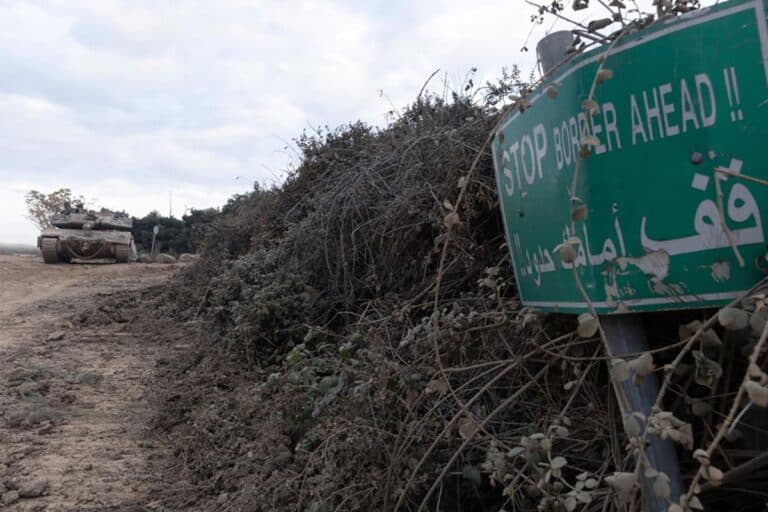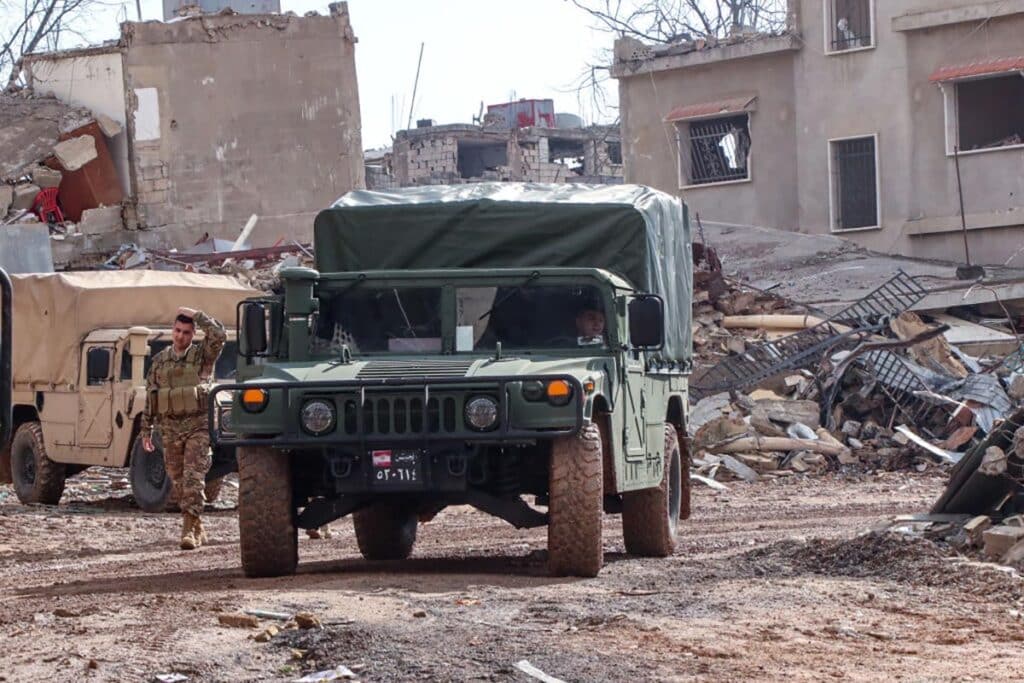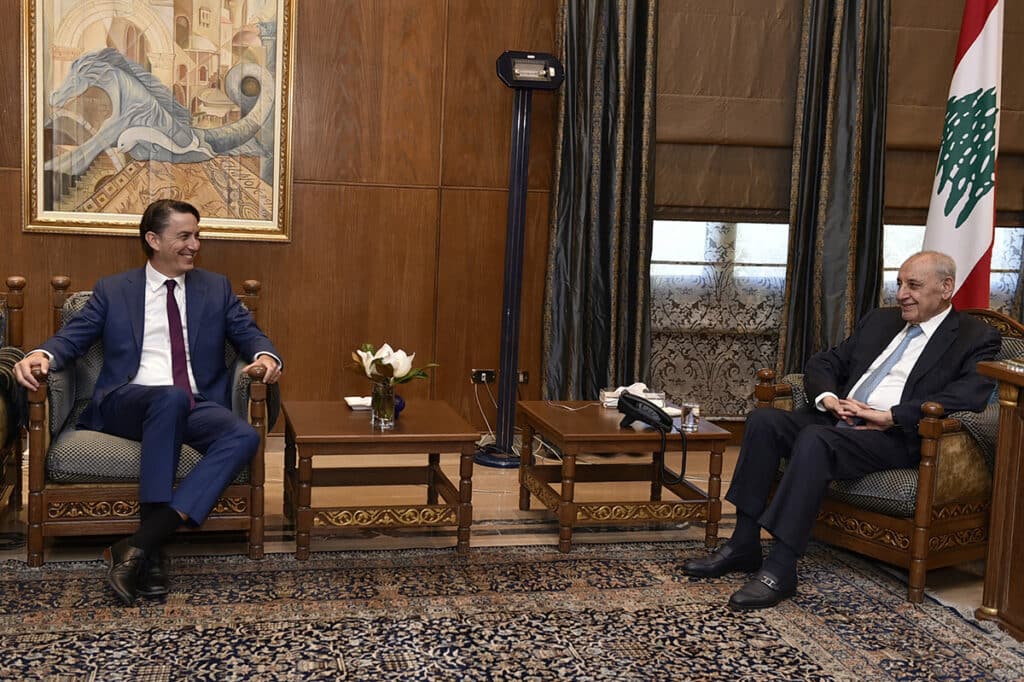
When Israel and Lebanon agreed to a ceasefire in November, one of the conditions was that Israel would withdraw from Lebanon within 60 days.
The deadline for that withdrawal – January 26 – is just over two weeks away, but Israeli officials are now saying that the IDF may need to stay longer.
Israel’s main issue is that the ceasefire is based on Hezbollah withdrawing from southern Lebanon, which it has so far failed to do.
In recent weeks, the IDF has repeatedly struck southern Lebanon in response to ceasefire violations, including the presence of rocket launchers that the Lebanese Army failed to address.
In total, Hezbollah committed 47 violations of the ceasefire as of December 27, according to the IDF. Lebanese officials also accused Israel of violating the ceasefire dozens of times due to the actions taken by the IDF against Hezbollah’s violations.
The Lebanese Army is so far failing to enforce the ceasefire
The Lebanese Army, in collaboration with UNIFIL, is tasked with enforcing the terms of the ceasefire concerning Hezbollah.

For years, the Lebanese Army has failed to act against Hezbollah, both because of a lack of willingness and because of a lack of ability. Compared to the Iran-backed terrorist group, the Lebanese Army is relatively weak and relies heavily on foreign support. The Lebanese Army and the political leadership in Lebanon, which Hezbollah is part of, are also concerned that acting against Lebanon could spark a civil war.
The Lebanese Nidaa Al Watan news outlet reported last week that the commander of the Lebanese Army, Joseph Aoun, told Saudi officials that he refused to confront Hezbollah. The news outlet later removed this detail from its report.
Israel says it wants to uphold the ceasefire, but only if Lebanon does too
Israeli Defense Minister Israel Katz said on Sunday that Israel is interested in upholding the ceasefire agreement, but stressed that the “first condition for upholding the agreement is the complete withdrawal of the terrorist organization Hezbollah across the Litani River, the dismantling of all weapons, and the disruption of terrorist infrastructure in the region by the Lebanese army – something that has not yet happened.”
In the meantime, the IDF has pulled out of some parts of southern Lebanon.
On Sunday, the IDF began withdrawing from Naqoura, located along the coast of the Mediterranean Sea near the Israeli border. The Lebanese Army announced that it began deploying in the city in coordination with UNIFIL as the IDF withdrew.
In December, the IDF withdrew from the town of Khiam in southern Lebanon, as the Lebanese Army deployed in the town.
Will the ceasefire collapse?
As Israel and Lebanon trade accusations about violations of the ceasefire, concerns have been raised that the ceasefire could fall apart.
Hezbollah’s new leader, Naim Qassem, warned that Hezbollah could attack Israel before or after the 60 day deadline, saying “when we decide to act, you will witness it directly.”
Qassem also insisted that the ceasefire agreement only pertains to areas south of the Litani River, implying that Hezbollah could continue to operate in any area north of the river which at some points is only four kilometers away from the Israeli border.
The Hezbollah leader additionally claimed that “Lebanon cannot exist without Hezbollah.”
U.S. envoy Amos Hochstein arrived in Lebanon on Monday to follow up on the issues surrounding the ceasefire and to try and prevent it from collapsing.
Hochstein stressed that an Israeli withdrawal from Lebanon would continue “until all Israeli forces are completely out of Lebanese territory.” He added that he believes that the withdrawal will be completed within the 60-day framework.

“Implementation may not have happened as quickly as some would have liked, but what I heard today in Naqoura made me feel hopeful that we are on the right track, and that the Lebanese Armed Forces are showing that they are a full partner, that they understand the needs of the Lebanese people and the geography of Lebanon, and that they inspire us with confidence that Lebanon will regain its security and safety soon,” said Hochstein. “The United States remains committed to implementing this agreement and supporting the Lebanese Armed Forces in this process and mission.”
The Lebanese MTV channel reported, however, that Hochstein was going to propose extending the ceasefire for another 60 days to complete the dismantling of remaining Hezbollah infrastructure in southern Lebanon.
An Israeli official told The Jerusalem Post on Sunday that Israel and the U.S. are working to extend the ceasefire by another 30 days, since the Lebanese Army is unlikely to be able to fully deploy in southern Lebanon by the end of the 60-day period.
Lebanese Prime Minister Najib Mikati opposed the idea during Hochstein’s visit, saying “talk about Israel’s intention to extend the ceasefire period is strongly rejected.” The prime minister also demanded that a clear timetable be set for Israel to complete its withdrawal before the end of the 60-day period.
Lebanon facing dramatic presidential vote
Amid the concerns surrounding the ceasefire, the Lebanese Parliament is set to meet on Thursday to try and elect a new president.
In Lebanon, the president is elected for a single six-year term. In order to be elected, a candidate has to receive a two-thirds majority in a parliamentary vote. If no candidate receives a two-thirds majority, a second vote is held in which only a regular majority is needed to be elected.
However, in order to even hold the vote, a certain percentage of the parliament needs to be present. Because of this, when the first round of voting – which requires a two-thirds majority – fails, parties opposed to a candidate with majority support will usually walk out, leaving the parliament without the quorum needed to hold the second round of voting and preventing the election of a president.
Lebanon’s previous president, Michel Aoun, completed his term in 2022, and since then, the Lebanese Parliament has made 12 failed attempts to elect a new president.
The president holds a lot of power, serving as commander-in-chief of the Lebanese Armed Forces. He also can appoint and dismiss the prime minister and cabinet, veto bills, and dissolve parliament. The lack of a president has placed the Lebanese government in limbo with officials unable to act effectively.
That political instability came as Lebanon was facing an unprecedented crisis. The country has been in an ever-worsening financial crisis for years, made worse by a devastating explosion at the Beirut Port in 2020 that killed dozens of people and caused extensive damage. Most of the country receives electricity for only a few hours a day and 44% of the population lives in poverty.
The leading candidates for the position of president are Joseph Aoun; Samir Gaegea, the head of the Christian Lebanese Forces party; Georges Khoury, the former ambassador to the Vatican and the former head of the Lebanese Army’s intelligence service; and Sleiman Frangieh, a former government minister.
It remains unclear if any of the candidates have enough support to be elected, although Aoun appears to be the candidate with the most support at the moment.
On Sunday, Wafiq Safa, the head of Hezbollah’s Liaison and Coordination Unit, announced that Hezbollah would not oppose the nomination of Joseph Aoun.
However, two weeks ago, another member of Hezbollah, Mahmoud Qmati, said that the group was interested in supporting Franjieh, a candidate it pushed throughout the elections.
